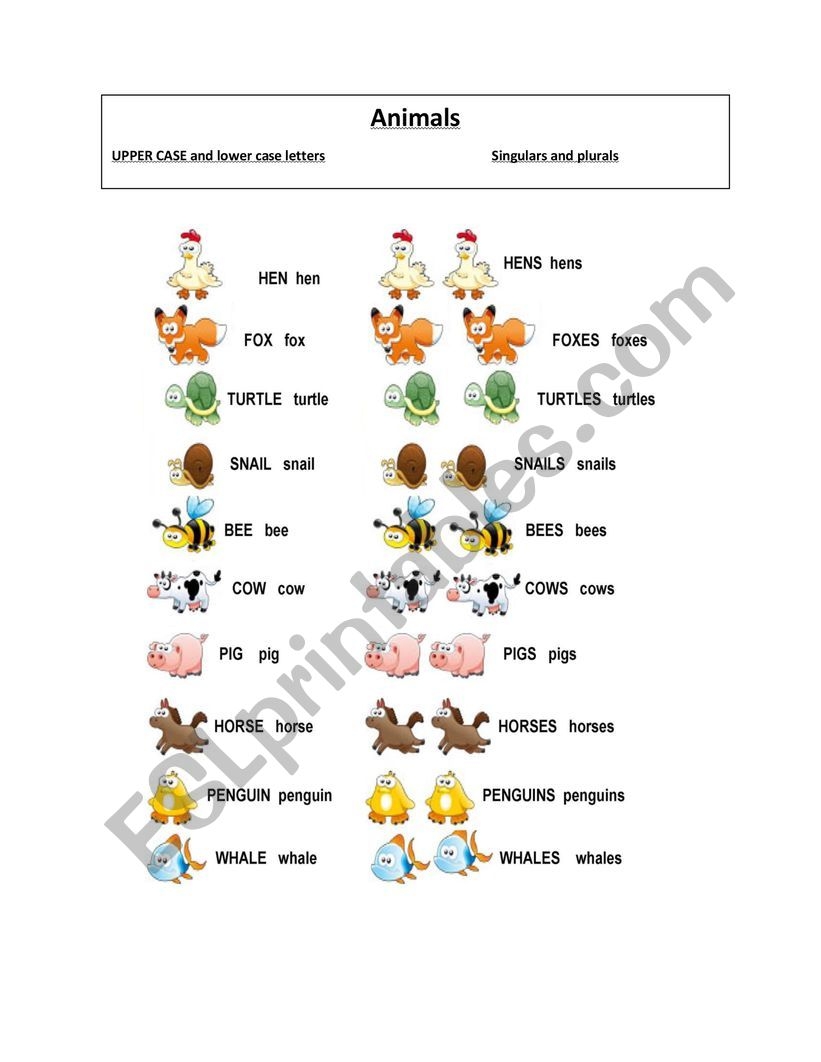When it comes to talking about animals, it’s important to know how to properly use their plural forms. Just like in English, some animal names change when they are pluralized. Understanding these plural forms can help you communicate more effectively and sound more fluent in your language.
Whether you’re a student learning a new language or just curious about how animals are pluralized in different languages, this article will provide you with some examples and explanations to help you grasp the concept of plural nouns for animals.
Examples of Plural Nouns for Animals
In English, some animal names remain the same in their plural form, such as “sheep” and “deer.” However, there are many animals whose names change when they are pluralized. For example, “goose” becomes “geese,” “mouse” becomes “mice,” and “child” becomes “children.”
Similarly, in Spanish, the plural form of “gato” (cat) is “gatos,” “perro” (dog) becomes “perros,” and “pez” (fish) becomes “peces.” In French, “chien” (dog) changes to “chiens,” “chat” (cat) becomes “chats,” and “poisson” (fish) becomes “poissons.”
Some languages have specific rules for pluralizing animal names, while others follow general patterns based on the word’s ending. Learning these rules and patterns can help you remember the plural forms of animal names more easily and use them correctly in your speech and writing.
Understanding plural nouns for animals is not only essential for language learning but also for effective communication. Using the correct plural form of an animal name can help avoid confusion and ensure that your message is clear and understandable to others.
So, whether you’re talking about a group of “cats,” “dogs,” “birds,” or any other animal, remember to use the appropriate plural form to convey your message accurately and confidently.
Next time you’re discussing animals with someone or writing about them, pay attention to how their names change when they are pluralized and practice using the correct forms to improve your language skills and communication abilities.
